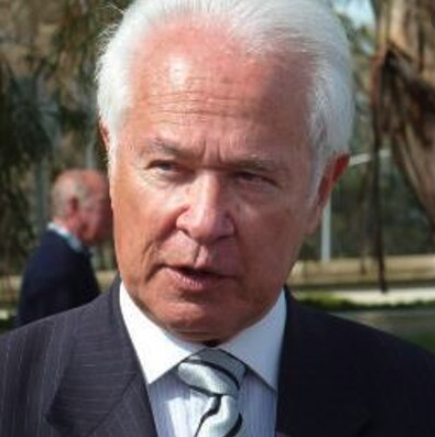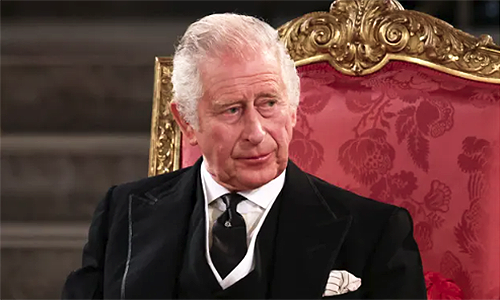
by DAVID FLINT – DEBATE over the appointment of a new governor-general is almost a century old. Notwithstanding the current controversy, Australians for Constitutional Monarchy has congratulated Samantha Mostyn.
On occasions such as this, it is appropriate to ask what sound constitutional monarchists like the former High Court Justice Michael Kirby, former Labor Lord Mayor Doug Sutherland or any of the great Labor leaders of the past, including John Curtin, would do.
- Other appointments have been just as strongly criticised.
- That criticism has often been shown to be wrong.
- One of our great constitutional successes is that it institutionalises the concept of leadership above politics.
Or the vast number of Labor voters who disregarded Party directions to vote No to the 1999 politicians’ republic.
Many belong, I suspect, to the large mass of Australians who, like Bill Hayden, see themselves neither as republicans nor monarchists. They probably think the constitution is among the best in the world.
CONCERNED
That is why in the 1999 referendum, we in the No case were not in the slightest concerned about ensuring the monarchist vote. They were in the bag.
The target was the vast mass of Australians who think like Bill Hayden.
As for a republic, we already have one – a crowned republic.
We also have an Australian recognised internationally as our Head of State, not that any Australian ever lost any sleep over that.
Despite having one of the better and oldest constitutional systems in the world, it could have been better.
I believe this was the result of Alfred Deakin dissuading the South Australian premier, Charles Kingston, from formally proposing that politicians be made accountable 24/7 by Swiss-style direct democracy through citizen-initiated referendums.
One result is we have gradually lost the crucial tool of competitive federalism. Thus if, say, Queensland introduced changes in their schools reversing the internationally verified collapse in standards, other States would be likely to follow suit.
Another result, I believe, is our electoral system is now more open to fraud than almost all comparable countries.
That said, one of the truly great successes of our constitution is that it institutionalises the concept of leadership above politics.
Contrast that with the US or France or countries with often weak and unknown parliamentary presidents.
This leadership is achieved through the oldest constitutional institution in the land, the Crown. The centrepiece, the sovereign with the royal family, is above politics.
Given that the King of Australia is also the King of Canada and his other realms, most of the powers of the Crown are exercised by the Governor-General and governors.
They are not now appointed, as it is sometimes said, by the King of the United Kingdom but by the King of Australia. This is on the advice of the Australian Prime Minister or the relevant premier.
As Tony Abbott says, this resembles judicial appointment, something which works well in Australia. (Again, contrast the US.)
CRITICISED
As stated above, some appointments have been strongly criticised. That criticism has often been shown to be wrong.
When the Chifley Government recommended in 1947 the appointment on his retirement of the highly successful NSW Labor Premier Bill McKell, Robert Menzies described this as “shocking and humiliating”.
But in office, McKell was popular and his judgement impeccable, granting Menzies the 1951 double dissolution over Labor objections, and accepting a knighthood.
Similarly, the appointment, on Bob Hawke’s recommendation, of the Labor leader he had just overthrown, Bill Hayden, was widely criticised.
But his performance as governor-general was impeccable. That he had been a politician was not unusual among governors-general.
However, all prior governors-general had been politicians in the UK, causing little concern here. This changed when an Australian was proposed.
This was a result of the 1926 Balfour Declaration, clarified by the 1930 Imperial Conference, deciding that recommendations come from the Dominion prime minister.
Labor Prime Minister Joseph Scullin recommended the appointment of High Court Justice Sir Isaac Isaacs.
AGAINST
The recommendation was widely condemned in Australia and petitions were sent to the King against it.
George V’s objections were that: as his representative he did not know him; Isaacs was aged 75; he had no experience in similar positions; and had been a politician.
The objection there seemed to be that his role as a politician had been in Australia.
But Scullin would not be dissuaded.
There was no doubt that Isaacs was remarkable. As founder Sir Robert Garran said, before his High Court appointment Isaacs during the day carried on the biggest Victorian Bar practice and, by night, did full justice to the duties of attorney-general.
Between 1901 and 1906, he led in over 100 very wide-ranging cases in the Victorian Supreme Court and 25 in the High Court.
Once appointed to the High Court it was clear that, as at the Constitutional Convention, he believed in the strong reach of federal power.
Scullin persisted. The fear at the Palace was that if the King rejected the advice tendered, the government could resign and recommend an election.
UNPOPULAR
Scullin was unpopular and could contest the election on the issue of an Australian governor-general, hardly something that the King could be involved in.
According to Scullin, the King said at the end of their discussion, “…being a constitutional monarch, I must, Mr Scullin, accept your advice”.
The point surely is that any appointment as governor-general will not have universal approval. The system of prime ministerial recommendations, preferably with a first, informal approach to the Palace, is what our successful system supports.
We can best judge governors-general in office. Polling is suggesting that the next term will produce a minority government.
Let us hope that with any instability, the Governor-General can perform as the VC recipient, Lord Gowrie, did in 1941 in the darkest days of the war.
When two independents crossed the floor and brought down the Coalition, rather than ordering a new election, Lord Gowrie called in the independents.
He extracted from them a promise that if he commissioned John Curtin as prime minister, they would support him and end instability. They agreed and Gowrie appointed Curtin. Gowrie proved a tremendous support for the war effort.PC













Dear John W – why are you so gutless? Why won’t you answer a question?
Why is Australia’s (so called) head of state appointed by, acts for, swear obedience to, and answers to the person who is the UK’s head of state?
Does it make you proud?
Please tell us.
In 2023 the Australia’s (so-called) head of state pledged his OBEDIENCE to the person who is the UK’s head of state.
What a pitiful insult.
Monarchy makes Australia inferior.
That is why proud Australians reject this foreign feudal medieval subservient rubbish.
It is hilarious how you monarchist dogs oppose a say on the actual head of state, but demand a say on the head of state’s appointed representative.
Goodness, Noel. How old are you? Are you a child, who can be forgiven for such foolishness? Or an adult, who deserves only pity?
Invader General.
Who is the UK head of state?
Who is the UK’s head of state?
And why is Australia’s (so called) head of state appointed by, acts for, and answers to the person who is UK head of state?
Monarchy. Makes. Australia. Inferior.
No Head of State in the Constitution.
That role is however carried out by the Governor General who is selected and nominated by the Prime Minister and Cabinet of the Commonwealth of Australia.
…and appointed by the monarch, to represent the monarch, and act for the monarch, at the pleasure of the monarch.
Read and learn …
https://www.ourconstitution.org/aust_head_of_state.php
I have read the constitution, thanks. I understand it. I do not lie about it.
I know that the constitution says the GG is appointed by, acts for, and answers to the monarch.
Quote
To summarise, the Australian Constitution does not refer to the Head of State; the Head of State is the person who performs all of the duties of the Head of State; the Queen has never performed any duties as Australia’s Head of State; such constitutional duties as the Queen does perform are as Sovereign and Queen of Australia and not as Head of State; the Governor-General performs all of the duties of the Head of State; the Constitution confers the duties of the Head of State on the Governor-General in his own right and not as a surrogate or delegate of the Queen. As this paper shows, there is a long list of legal advice and judicial opinion in support of the case that the Governor-General is the Head of State, and not a skerrick of constitutional or legal evidence to the contrary.